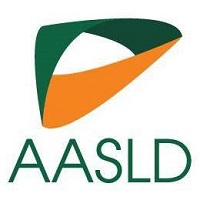 A nucleic acid-based polymer called REP 2139, given alone and with interferon, has shown promise treating coinfection with hepatitis B virus (HBV) and hepatitis delta virus (HDV), HIVandHepatitis.com reports. Researchers in the Phase II trial treated 12 HBV/HDV-coinfected participants who had a baseline serum hep B surface antigen (HBsAg) greater than 1,000, were negative for the hep B “e” antigen (HBeAg) and had mild to moderate fibrosis.
A nucleic acid-based polymer called REP 2139, given alone and with interferon, has shown promise treating coinfection with hepatitis B virus (HBV) and hepatitis delta virus (HDV), HIVandHepatitis.com reports. Researchers in the Phase II trial treated 12 HBV/HDV-coinfected participants who had a baseline serum hep B surface antigen (HBsAg) greater than 1,000, were negative for the hep B “e” antigen (HBeAg) and had mild to moderate fibrosis.
Results were presented at the Annual Meeting of the American Association for the Study of Liver Diseases (AASLD) in San Francisco.
The investigators gave the participants 500-milligram intravenous infusions of REP 2139 once a week for 15 weeks. Then they halved the dose and continued treatment for another 15 weeks along with weekly interferon that continued for 48 weeks.
The treatment reduced HBsAg levels and hep D viral load, and increased anti-HBs antibody titers.
The most common adverse side effects were mild to moderate transient intravenous infusion reactions, such as fever, headache, injection site redness or itchiness.
To read the HIVandHepatitis article, click here.

Istock






Comments
Comments